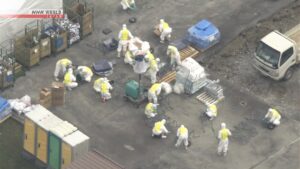The nonprofit organization Save the Children issued a warning on Friday, September 6, saying that the hundreds of thousands of children who are currently displaced face dangers from disease, starvation as a result of crop destruction, and disruptions to their education.
This is the rainiest season in West Africa, but the rains this year have been more intense than usual.
29 of Nigeria’s 36 states have been severely impacted by widespread flooding. Because of the intense rain, which has caused dams to overflow, the two largest rivers, the Niger and the Benue, are currently at higher water levels.
Gao in the northeast and three Malian regions in the west have been affected. Floods that started in May in neighboring Niger have devastated all eight regions, sweeping away homes and leaving a trail of devastation in their wake. According to Save the Children, the Maradi region in the southern part of the country was primarily affected.
In the three nations, there have been at least 460 fatalities.
The is providing water, sanitation and hygiene services, food security programs, cash transfers, and child protection initiatives to meet the needs of flood victims in the Segou region of Mali. With 15,656 affected children, or roughly 51% of the total number of affected children in Mali, the Segou region is the most affected.
In response to the floods in Adamawa state, Nigeria, Save the Children is providing foldable mattresses, blankets, and supplies for hygiene and sanitation to the most vulnerable households, including those with elderly and children.
Save the Children has called on national governments to “rapidly phase out the use and subsidy of fossil fuels and ensure a just and equitable transition in order to limit warming temperatures to 1.5 degrees C above pre-industrial levels” as part of the global response to the climate crisis.


